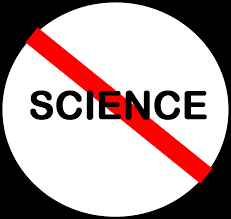The War on Science Continues
Legal Planet: Environmental Law and Policy 2017-04-29

Trump’s anti-science views, on topics ranging from climate change to vaccines, got a lot of attention during the campaign. His budget puts these attitudes into operational form, and he has also left the White House science office empty, without replacing the presidential science advisor or other scientific staff. But he’s certainly not alone in his indifference to science, an attitude that is shared by key members of Congress and of his Administration. Since this is the week before Earth Day and the science march, the topic is especially timely. It’s not just a matter of political hot air — there are real threats to the ability of scientists to do their work.
House GOP assault on science. Lamar Smith, the head of the House Science Committee, has apparently been energized by Trump’s elections. On March 24, he addressed a cheering audience at the Heartland Institute. “Next week we’re going to have a hearing on our favorite subject of climate change and also on the scientific method, which has been repeatedly ignored by the so-called self-professed climate scientists.”
“The days of trust-me science are over,” according to Smith, who has also attacked the leading U.S. scientific journal Science as lacking objectivity. His committee has announced that it will seek to cap NSF grants outside of the physical and biological sciences, cutting social sciences and geosciences — because who wants information about human behavior or the planet we live on, right? The committee also calls for the following: cutting DOE biological and environmental research, cutting R&D for energy efficiency and renewable energy “by at least $750 million,” reducing NOAA climate change programs, cutting NASA’s earth science funding by $471 million, and eliminating $2 billion in climate change research by the U.S. Global Change Research Program.
The House also passed a bill to require EPA to use scientific research only if it obtains access to the original data and makes that data available, at least in redacted form. This could make it impossible to use some medical studies due to confidentiality concerns or because foreign researchers do not (or legally cannot) make the original data available. Another bill passed by the House would shift the composition of EPA’s science advisory board to make it more difficult for independent academics to serve.
Trump’s Budget. The House GOP seems to be in line with Trump’s plans. His budget cuts EPA research by a third. The cuts range across the research spectrum from climate change to toxic chemicals but the largest cuts are in research on air pollution, energy, and climate change, along with community health. The budget also eliminates the programs supporting water quality research, regional science and technology, and science policy & biotech. The budget proposal also eliminates a program to support graduate students studying environmental science.
In addition to the research cuts at EPA, Trump’s budget cuts almost a billion dollars from DOE’s Office of Science and eliminates ARPA-E program. NOAA and NASA are also facing huge research cuts. The budget calls for canceling NASA missions that would decrease uncertainty about climate change, which is ironic in light of the Administration’s position that a policy response is precluded by scientific uncertainty. A recently leaked document revealed at plan to cut EPA’s Science Advisory Board by 84%.
Not content with attacking environmental and energy research, the budget also proposes a 20% cut in funding for the National Institutes of Health. Apparently, the idea is that this will take the form of cuts in research grants, requiring financially strapped universities to pay more of the costs associated with research projects. That will cripple major research universities, a major source of innovation in our society.
Science Denial in the Agencies. In early March, EPA Administrator Scott Pruitt showed that he still isn’t buying climate science. He was asked on CNBC whether CO2 is the main cause of climate change. His answer? ““I think that measuring with precision human activity on the climate is something very challenging to do and there’s tremendous disagreement about the degree of impact, so no, I would not agree that it’s a primary contributor to the global warming that we see.” More recently, he said that the climate is definitely changing but “[t]he issue is how much we contribute to it from a human activity perspective and then what can we done about it from a process perspective.” For the head of EPA to say this is a bit like a geography teacher questioning whether the earth is round. (On the bright side, he did reportedly push back against efforts to reopen EPA’s endangerment finding, realizing that this would be overturned in the courts.) Pruitt also overruled agency scientists and refused to ban chlorpyrifos, a widely used pesticide on farms.
Meanwhile, according to Politico, a “supervisor at the Energy Department’s international climate office told staff this week not to use the phrases ‘climate change,’ ’emissions reduction’ or ‘Paris Agreement’ in written memos, briefings or other written communication.” (The agency denies this.) Also taking an anti-science stance, Attorney General Sessions eliminated the Commission on Forensic Science, which was supposed to help make evidence more reliable.
In an era when facts have been replaced by “alternative facts,” maybe this disdain for scientists and their work shouldn’t be too surprising. It is still disheartening, however, to see that a 21st Century government prefers political dogma to scientific inquiry.